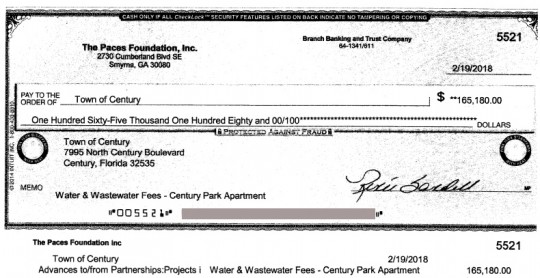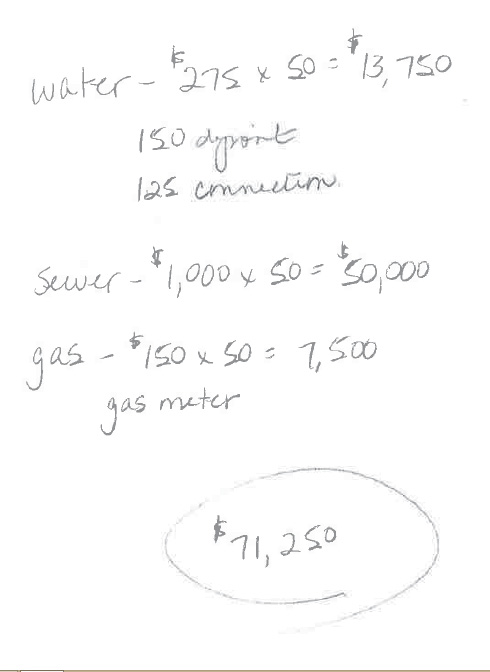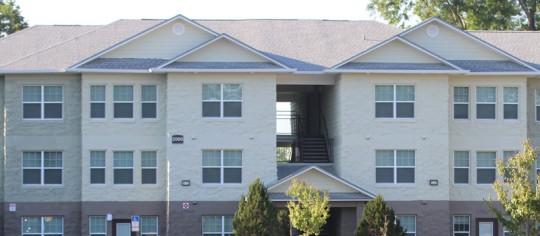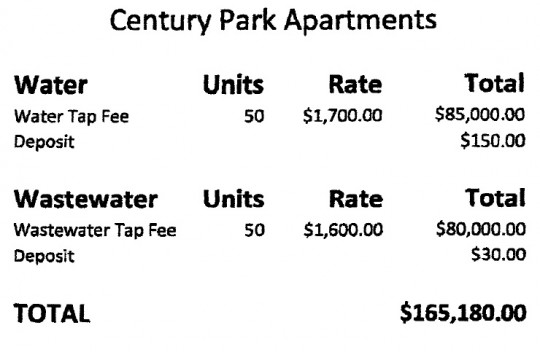Apartment Developer’s Utility Lawsuit Against Century Dismissed, But Motion For Rehearing Filed
October 14, 2019
A motion to dismiss a utility deposit lawsuit against the Town Century by an apartment developer has granted, but the case is not over.
The Paces Foundation and Century Park Apartments have filed a motion for a rehearing or reconsideration.
 Paces contends they owed $63,750 for water and wastewater connection fees, but instead they were forced to pay over $100,000 more.
Paces contends they owed $63,750 for water and wastewater connection fees, but instead they were forced to pay over $100,000 more.
The court adopted both arguments that the town raised in defense that sovereign immunity and fraud statutes each preclude the Pace’s claims. But the apartment complex’s lawyers contend in their motion that the dismissal order overlooked key points of Florida law which authorize judicial review of the utility charges in question, and a rehearing or reconsideration is warranted to allow the case to proceed on its merits.
The plaintiffs do not seek “mere enforcement of an oral agreement as to the cost of utility services in this case. Rather, Plaintiffs have filed this action to enforce the statutory mandate that all municipal utility charges imposed upon private landowners must be ‘just and equitable’ according to the circumstances presented,” their motion states.
Century Park contends that they elected to make their $10 million investment in Century in late 2015, at which time a 2015 water rate ordinance was in effect. Those rates were in effect until increased in a series of acts by the town council, increasing costs over $100,000 for the developer, according to the motion.
Century Park contends it was not “just and equitable” to increase the rates after the property was developed.
The Dispute
In February 2018, Paces submitted a $165,180 check to the town for water and wastewater tap fees along with a protest letter from attorney William J. Dunaway of the Clark Partington law firm in Pensacola. The letter informed the town that the payment was made in full, but the amount remained in dispute.
 Paces asked for a declaration that they owed the town $63,750 for full payment and an additional $101,430 deposit charged was invalid.
Paces asked for a declaration that they owed the town $63,750 for full payment and an additional $101,430 deposit charged was invalid.
The lower fee of $63,750, according to Paces, was decided upon during a 2015 meeting with then-Mayor Freddie McCall and Town Planner Debbie Nickles. The only written agreement to come out of that meeting was a handwritten page showing calculations that Paces said were based upon the 2015 rates as published online in the town’s municipal code. The handwritten document also included a proposed fee for natural gas; however, the developer later opted to go all-electric.
In 2017, the town council passed two resolutions increasing the water and sewer tap fees and charged Paces based upon 50 connections. The apartment complex, according to the lawsuit, has only one master meter that serves all 50 units.
Paces contends they relied upon the lower payment quote in determining their financial options with the apartment development. They contend they were forced to submit the higher fee in order to obtain utility services and obtain a certificate of occupancy for the apartments.
McCall and Nickels did not deny the meeting, nor did they deny the agreement or the approximate $63,000 tap fee. “The town made a commitment to them. To me, they should do the right thing and honor that commitment,” Nickels said during a March 2018 town council meeting also attended by McCall.
Pictured top: Century Park Apartments. Pictured top inset: A check submitted under protest to the town by the Paces Foundation. Pictured bottom inset: The handwritten document Paces contends demonstrated a lower water and sewer tap fee as authorized by town code. Pictured below: Century’s justification for the $165,180 tap fee charged to the developer. NorthEscambia.com photo and images, click to enlarge.
Comments
One Response to “Apartment Developer’s Utility Lawsuit Against Century Dismissed, But Motion For Rehearing Filed”





Of course the lawyer wants to continue fighting this as long as possible. Pretty soon they will owe him $100000. The owners should do like other businesses and pass the cost to the consumers. Add $50 to the rent of 50 units and collect $30000 a year…Ecua did it to pay for moving the sewer plant and still collecting the improvement fee years after the new plant was built.